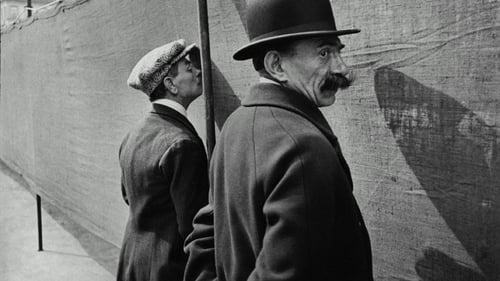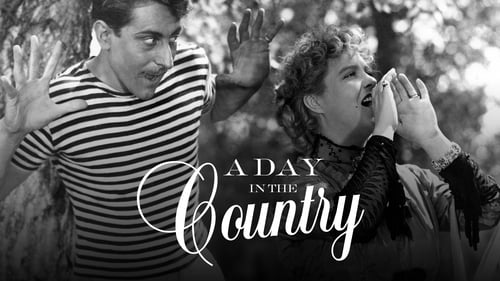
self
Documentary about one of the most important architects of the 20th century.

Self
Heinz Bütler interviews Henri Cartier-Bresson (1908-2004) late in life. Cartier-Bresson pulls out photographs, comments briefly, and holds them up to Bütler's camera. A few others share observations, including Isabelle Huppert, Arthur Miller, and Josef Koudelka. Cartier-Bresson talks about his travels, including Mexico in the 1930s, imprisonment during World War II, being with Gandhi moments before his assassination, and returning to sketching late in life. He shows us examples. He talks about becoming and being a photographer, about composition, and about some of his secrets to capture the moment.

himself
A good insight insights into the one of the greatest minds in photography. Henri Cartier-Bresson (August 22, 1908 -- August 3, 2004) was a French photographer considered to be the father of photojournalism. He was an early adopter of 35 mm format, and the master of candid photography. He helped develop the street photography or life reportage style that was coined The Decisive Moment that has influenced generations of photographers who followed.

Self (voice)
Part one of a BBC documentary about Jean Renoir.

Self
Contre l'Oubli (Against Oblivion) is a compilation of 30 French filmmakers, Alain Resnais and Jean Luc Godard among them, who use film to make a plea on behalf of a political prisoner. Jean Luc Godard and Anne Marie Mieville's film concerns the plight of Thomas Wanggai, West Papuan activist who has since died in prison. The short films were commissioned by Amnesty International.

Himself
Henri Cartier-Bresson: The Decisive Moment is an 18-minute film produced in 1973 by Scholastic Magazines, Inc. and the International Center of Photography. It features a selection of Cartier-Bresson’s iconic photographs, along with rare commentary by the photographer himself.

Writer
Henri Cartier-Bresson: The Decisive Moment is an 18-minute film produced in 1973 by Scholastic Magazines, Inc. and the International Center of Photography. It features a selection of Cartier-Bresson’s iconic photographs, along with rare commentary by the photographer himself.

Cinematography
Impressions of Mississippi by Henri Cartier-Bresson.

Director
Impressions of Mississippi by Henri Cartier-Bresson.

Director of Photography
Impressions of California as seen by Henri Cartier-Bresson.

Director
Impressions of California as seen by Henri Cartier-Bresson.

Seminarian (uncredited)
The family of a Parisian shop-owner spends a day in the country. The daughter falls in love with a man at the inn, where they spend the day.

Second Assistant Director
The family of a Parisian shop-owner spends a day in the country. The daughter falls in love with a man at the inn, where they spend the day.

Director
Live footage from concentration camps after the liberation, and the complex transport and lodging of masses of prisoners of war and other deported people back to their home countries, at the end of World War II. A 45min 35mm print also exists (shown at Cinémathèque française in 2023).

First Assistant Director
A weekend at a marquis’ country château lays bare some ugly truths about a group of haut bourgeois acquaintances.

Le domestique anglais (uncredited)
A weekend at a marquis’ country château lays bare some ugly truths about a group of haut bourgeois acquaintances.

Director
In July 1936, the Spanish people resist the offensive by Franco’s army, backed by Italian and German fascists, aimed at conquering the country's major cities. Although many of the recruits to the new Republican Army are well trained, weapons and ammunition remain in short supply due to the non-intervention agreement initiated by France and signed by Italy and Germany. Yet the latter two countries continue to provide Franco’s army with military support and commit their troops on Spanish soil, while the fighters of the International Brigades return home.

Director
In this propaganda film intended to raise money for republicans fighting in the Spanish Civil War, Henri Cartier-Bresson first presents the achievements of the Spanish Republic in the field of public health. He then shows how members of the public and organizations across the world were supporting the fighters.

Director
This advocacy documentary about the Lincoln Brigade was shot during the Spanish Civil War to raise funds for bringing wounded American volunteers home. Some 2,800 Americans enlisted in the International Brigades to fight against fascism in defense of the Spanish Republic. The film was directed by Henri Cartier-Bresson with Herbert Kline and additional photography was provided by Jacques Lemare and Robert Capa. This film is held at New York University’s Tamiment Library and is part of a vast collection of materials in the Abraham Lincoln Brigades Archive.

Director
A propaganda film of the communist party of France, showing how the comrades help the proletariat against the capitalists.

Himself
Documentary about photographer Henri Cartier-Bresson, including footage of him in his Paris and Provence homes and many stills of his works. He talks about his passion for drawing, offers his opinion on different types of photography and shares photos of himself.













